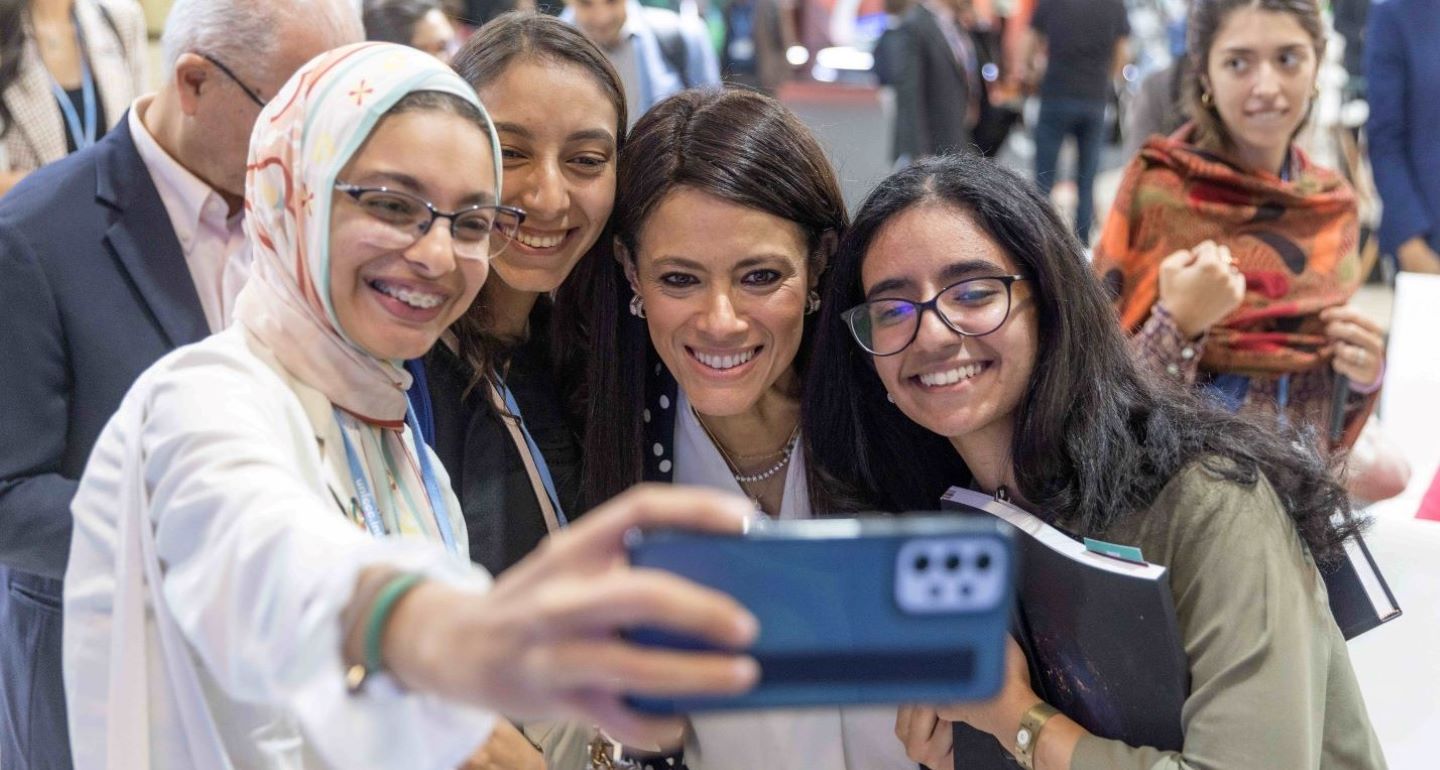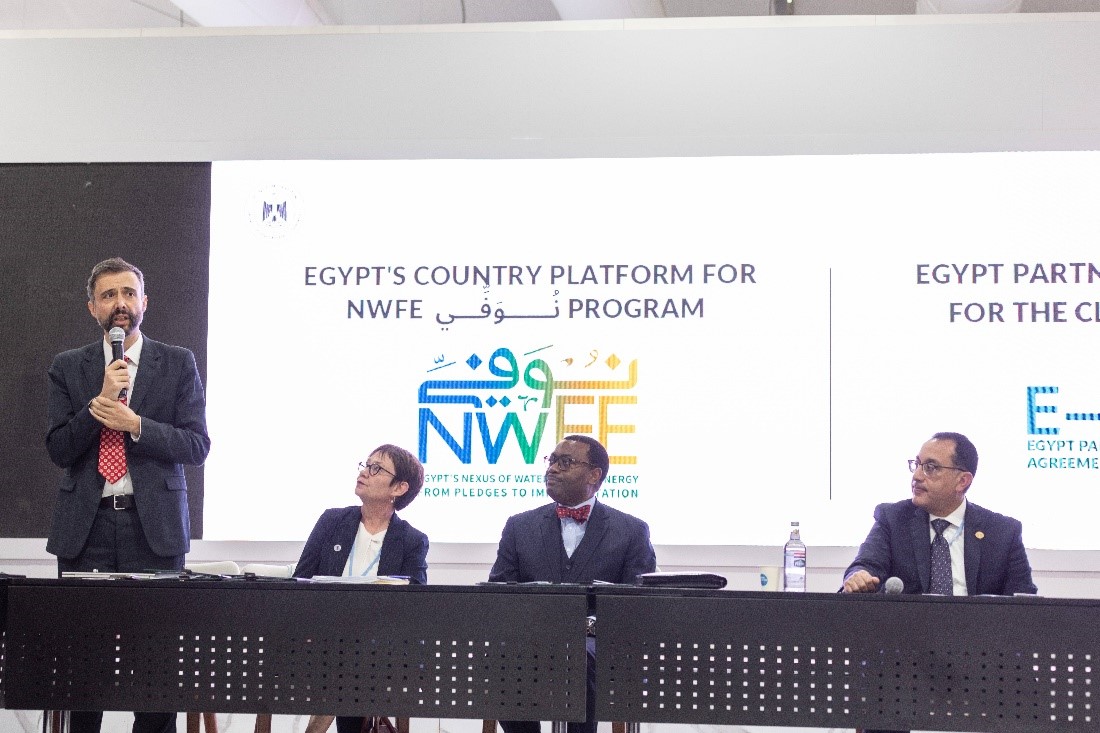COP27 is over. Here are five things the world must do now to move forward
IFAD Asset Request Portlet
Asset Publisher
COP27 is over. Here are five things the world must do now to move forward
Estimated reading time: 6 minutes
For some, the outcomes of COP27 will be underwhelming, especially given the urgency to meet commitments made in 2015 and a flurry of evidence revealing that the world is nowhere near meeting climate targets.
As the countdown clock to 2050 ticks ever louder, IFAD was in Egypt to share what we know about responding to climate change. With over 40 years’ experience supporting the poor rural people who are at the frontlines of the climate battle, we explored solutions to help the world get back on track towards a more sustainable future.
1. Adapt or starve
An uncomfortable message but an honest one. With the impacts of climate change becoming more frequent and severe—from extreme floods in Pakistan to the worst drought in forty years in East Africa—IFAD is sounding the alarm. While mitigation still matters, we urgently need more money to help hundreds of millions of small-scale farmers adapt to the very real fallout of a changing climate.
A failure to act now means higher food insecurity in the future as climate disasters become even more commonplace. A hotter, more fragile world means more migration and more conflict. The window to act is narrowing rapidly, yet resources are failing dramatically to meet global needs.
So, what do we need? IFAD is urging global leaders to double their financing for adaptation—at least. Today, adaptation support stands at less than one-tenth of the amount needed.
For our part, IFAD is dedicating 40 per cent of our core resources to climate action, with a focus on adaptation.
Norway’s US$ 9.5 million pledge and Germany’s EUR 15 million commitment to ASAP+ at COP27 are encouraging steps forward.

2. Find what works and replicate it
On the second day of COP27, in a packed room in the Egypt Pavilion, the Nexus of Water, Food and Energy (NWFE) programme was launched.
With a total cost of US$15 billion, the ambitious programme links the essential water, food and energy sectors. This paves the way for Egypt to meet their 2030 climate change agenda while acknowledging the links between climate action and development.
IFAD will lead on the food pillar, the African Development Bank (AfDB) on water and the European Bank for Reconstruction and Development (EBRD) on energy.
But this is not just progress for Egypt. As the United States Special Presidential Envoy for Climate, John Kerry, said at the NWFE signing, this is a model that can be replicated across African countries by establishing multi-stakeholder platforms and linking key pillars for a comprehensive rural development agenda.
3. Help poor countries help themselves
In the last year alone, countless climate disasters have upended the lives of people in the world’s poorest countries. Those most affected are poor rural people who have contributed the least to the climate crisis.
Many are asking how these developing countries can weather the climate storm while also cutting emissions and supporting a poor population.
Concurrently, more than 50 of the poorest developing countries are in danger of defaulting on their debt unless the rich world offers urgent assistance.
At COP15, wealthy countries pledged US$ 100 billion a year in climate finance funding to less wealthy nations. Twelve years later, these promises remain unfulfilled, so what can be done?
IFAD's Adaptation for Smallholder Agriculture Programme supports small-scale farmers as they build their resilience to a changing climate. Recognising that these farmers have contributed little to the climate crisis, countries do not have to pay back these funds, helping them adjust to the new normal without having to bear the costs.
During IFAD’s event on Recovery. Rebuilding. Resilience. Rural women on the frontlines of the global economic, food and climate crisis, Germany announced their willingness to clear Somalia’s US$ 6 million arrears to IFAD, joining Belgium, Sweden and Italy in this effort. This in turn would unlock new funding so IFAD can continue supporting rural small-scale farmers in the country.
4. Champion what we already know
From sustainable recipes to being Seed Guardians, indigenous peoples have a special role to play in conserving natural resources. Their in-depth, local knowledge can help the world adapt to climate change.
We saw this first-hand at COP27 when three indigenous women from the Awajún community in the heart of Peru's Amazon rainforest shared their ancestral traditions. Working with IFAD, this women-only group are reforesting their local area and using drip irrigation to overcome droughts and grow medicinal plants and tea.
This is just one of many examples of how indigenous knowledge—that has been around for centuries—can help us solve today's problems.
5. Involve the private sector
As IFAD's President, Alvaro Lario, pointed out, public finance alone is not enough to face the enormity of the climate crisis. The private sector must be part of the solution, yet currently less than 1 per cent of climate finance comes from the private sector.
Adaptation is an unprecedented and underutilised commercial opportunity. Public institutions must do more to tap into its potential by developing business cases, instruments and incentives to drive private investment towards small-scale farming.
For our part, as well as working with a diverse group of partners, IFAD issued it first Sustainable Development bonds in June 2022, making it the first United Nations Fund and the only UN body and specialized agency, other than the World Bank Group, to enter capital markets.
Publication date: 21 November 2022